Miscellaneous
Same-sex marriage in Cuba: A bone of contention
Issue has sparked rare public debate
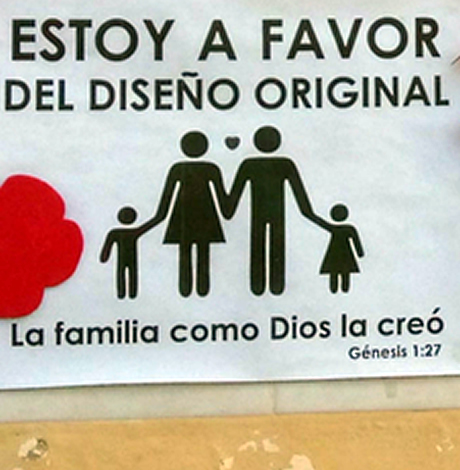
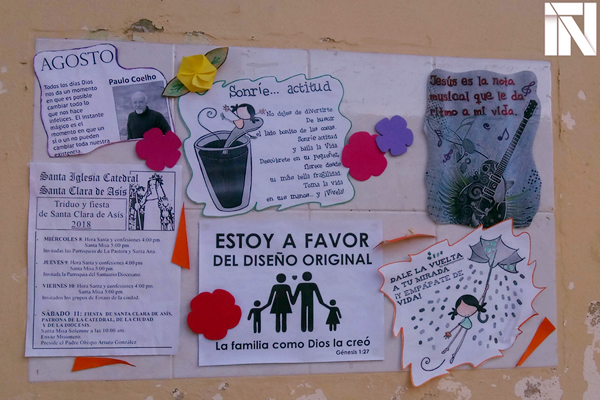
The Catholic Church is campaigning against same-sex marriage, though more discretely. Siervas de Jesús in Santa Clara, Cuba, has a mural that highlights opposition to equal marriage. (Photo by Carlos Alejandro Rodríguez Martínez/Tremenda Nota)
This article was originally published on Tremenda Nota’s website in Spanish.
SANTA CLARA, Cuba — A few weeks before the proposed changes to the concept of marriage were shared it was already a hot topic on the street and social networks.
While five Christian denominations have campaigned in favor of the “original design for the family, just as God created it,” the LGBTI+ population, along with many activists, artists and the general population, have defended the original Cuban design for the family, however it is made up.
Mariela Castro Espín, director of the Cuban National Center for Sex Education, told Parliament that “marriage is the possibility to guarantee other opportunities and rights that have been denied to people because of their sexual orientation.”
However, modifying the concept of marriage has caused more of a stir on the streets than in parliament itself. In squares, at get-togethers and even in churches, people are approving or condemning Article 68, which approves “the union voluntarily agreed upon, between two people with legal ability to do so, for the purpose of making a life together.”
Jovann Silva Delgado, a Cuban lawyer living in the United States, believes that the article’s text “leaves no room for doubt regarding the legislator’s intention to open up the possibility that two people of the same sex can marry.”
Nonetheless, Silva Delgado is concerned that Cubans are only discussing Article 68, and when it is put to a referendum they will forget other foundations that are essential for exercising democracy.
A few weeks ago, María Jorge López, coordinator of the lesbian group Labrys in Santa Clara, called on El Mejunje’s (a cultural space and mecca for marginalized people) public to vote in favor of the new constitution. María is a Cuban Communist Party militant and agrees with the draft constitution, which is currently under public consultation.
Since the public debates started on Aug. 13, the national news channel has only broadcast opinions against equal marriage. So far, any debate on the rest of the constitution has been limited to minor additions and, above all, approval. No one is questioning the strict guidelines laid down in the draft document governing the Cuban Communist Party. The irrevocable character of the social, economic and political systems in the country seem to be untouchable issues.
Who is more original?
Last May the Cuban Evangelical League, the Baptist Convention of Western Cuba, the Baptist Convention of Eastern Cuba, as well as the Cuban Methodist Church and the Evangelical Assembly of God Church announced that they were in favor of the “original design for the family.” They have held several fasts and protests to express their disapproval of the possible change to the supreme law.
Meanwhile activists campaigned, mainly on social media, to support the change in the new constitution. They substituted the churches’ poster with one defending the “Cuban design” of a “very original family,” that is not limited to the Father + Mother + Baby formula.
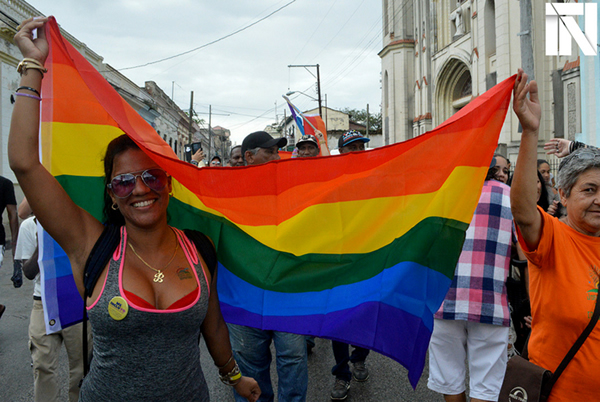
Activists and LGBTI+ people have demanded the right to equal marriage in Cuba for years. (Photo by Yariel Valdés González/Tremenda Nota)
When questioned, Yoan Pérez de Ordaz, a youth leader at Santa Clara Trinity Baptist Church, defended his position with the opinion that, “the country’s future should be for everyone.”
“Basically, the evangelists’ position is that same-sex marriage legislation should not exist. However, I believe that the letter [from the five Christian denominations] that is circulating does not open dialogue,” says the devout Christian.
Pérez de Ordaz understands, however, that the system has historically discriminated against Christians and homosexuals. Some “went to the UMAP [agricultural labor camps] together, but at the moment the law is only favoring some. Our worldview won’t be reflected by the constitution or in the Family Code. Therefore, the document won’t be inclusive: it excludes me and many others.”
While several churches oppose changing the concept of marriage, in Havana several activists have organized public interventions and photography sessions of symbolic weddings in front of Revolution Square and other emblematic spots in the capital.
Many of El Mejunje’s public believe that marriage should not be considered the end goal.
Blancuchini, a famous transformista from Santa Clara, believes that LGBTI+ people also need respect from the police and that trans people should be allowed to wear feminine clothing at places of work or education.
“Everyone wants to get married here, one day I’ll meet my other half,” says Zuleika, another trans girl in Santa Clara, who also wants something more: “a law that allows me to put my name on an identity card.” Others, like Javier Lorenzo Olivera, a transformista from Santa Clara, hope that lesbian and gay couples will be allowed to adopt soon.
LGBTI+ people are also demanding that their right to inherit, among others, is recognized. Francisco Águila Medina, a retired philosophy professor, observes that the potential change in the law “will bring down the barriers for going to a hotel or a cabaret where you have to enter as a couple. I think even school and university curricula will change.”
Visual artist and designer Roberto Ramos Mori from Havana represents another group of activists who recognize the importance of same-sex marriage but doubt its ability to achieve real change. “I’m not against marriage. I’m against the institution of marriage that regulates the way that you build your family and that marriage is what gives you social guarantees. The state should guarantee the full development of human sexuality, without caring about people’s living arrangements,” Ramos Mori told Tremenda Nota.
Despite the different opinions, the majority of the LGBTI+ population thinks that the Constitution is the only way that they can be recognized and respected by society for the first time. Ramos Mori believes: “When we can be a part of it and really participate, irrespective of my sexual orientation or gender identity, I will be able to consider other rights.”
Miscellaneous
Stephen Miller’s legal group sues Fairfax County schools
Lawsuit challenges policies for transgender, nonbinary students
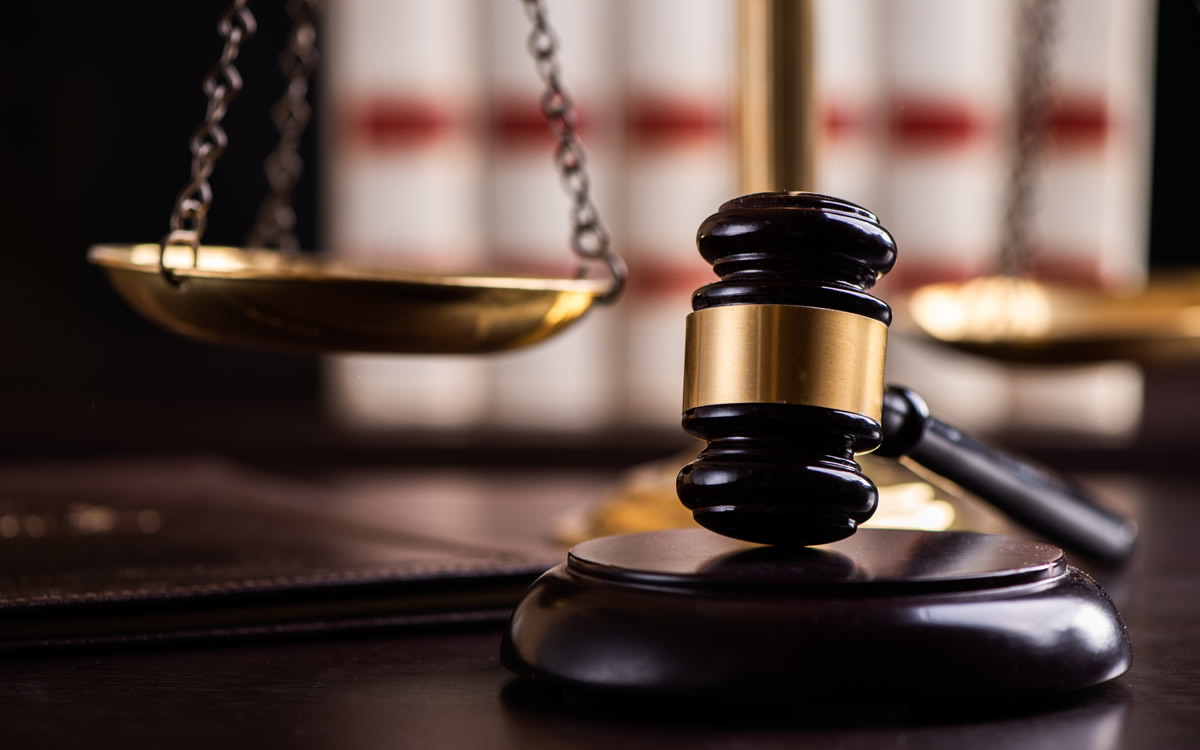
Former Trump administration official Stephen Miller’s legal group on Tuesday filed a lawsuit against the Fairfax County School District over its policies for transgender and nonbinary students.
America First Legal in a press release notes it filed the lawsuit against the school district on behalf of a female, “practicing Roman Catholic” student “for allowing teenage boys to use the female restrooms and for forcing a radical, government-sponsored gender indoctrination and approved-speech scheme that discriminates against students on the basis of sex and religion and violates their free speech rights under the Virginia Constitution.”
The lawsuit was filed in Fairfax County Circuit Court.
The Virginia Department of Education last July announced new guidelines for trans and nonbinary students for which Republican Gov. Glenn Youngkin asked. Equality Virginia and other advocacy groups claim they, among other things, would forcibly out trans and nonbinary students.
Fairfax County schools are among the school districts that have refused to implement the guidelines.
“Fairfax County Public Schools appears to believe that its policies and regulations can override the Virginia Constitution’s protections for religious beliefs, speech and from government discrimination on the basis of sex and religious beliefs,” said America First legal Senior Advisor Ian Prior in a press release. “It is well past time for FCPS to stop sacrificing the constitutional rights of its students so that it can implement a state-sanctioned ideology that demands compliance in speech, beliefs and conduct.”
FCPS Pride, a group that represents the Fairfax County School District’s LGBTQ employees, described the lawsuit as “abhorrent.”
“We are confident that the school board and the superintendent will strongly and firmly oppose this specious suit and continue to support all students, including transgender and gender expansive students,” said the group in a press list.
Miscellaneous
More than a dozen LGBTQ candidates on the ballot in Va.
Control of the state Senate hangs in the balance
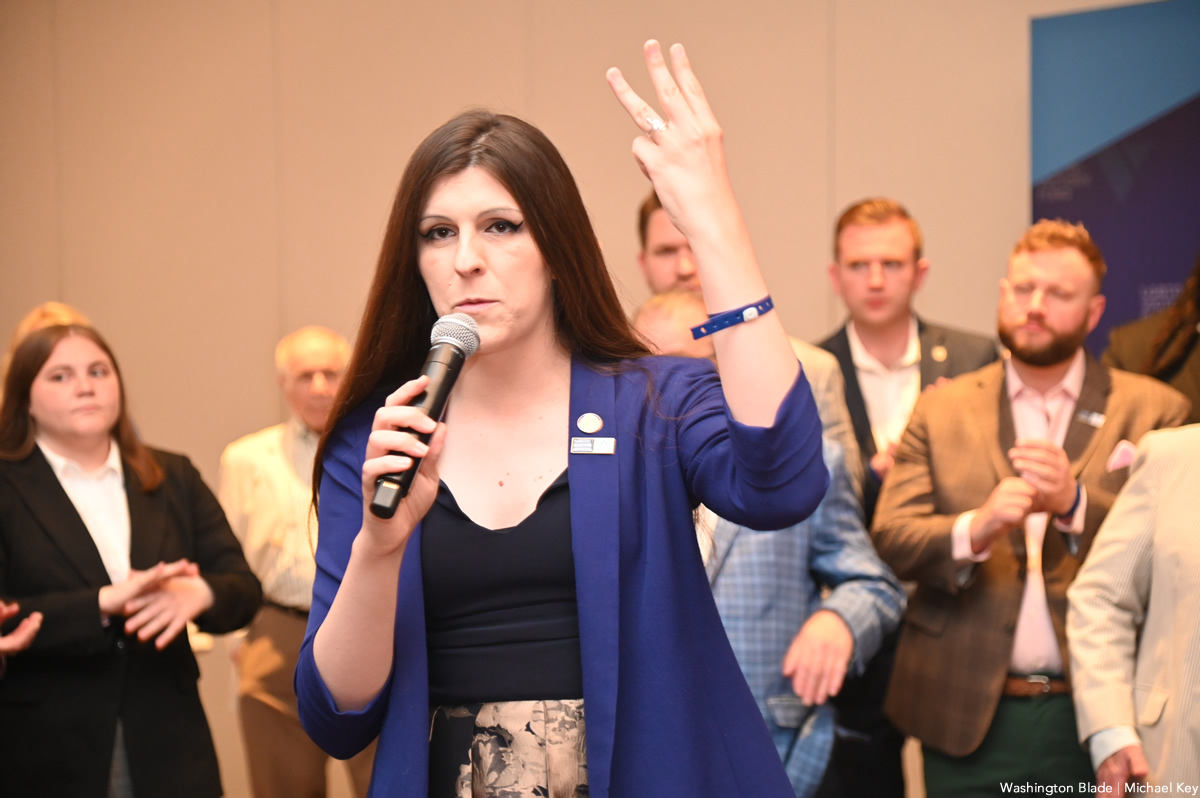
More than a dozen openly LGBTQ candidates are on the ballot in Virginia on Nov. 7.
State Del. Danica Roem (D-Manassas) is running against Republican Bill Woolf in the newly redistricted Senate District 30 that includes western Prince William County and the cities of Manassas and Manassas Park.
Roem in 2018 became the first openly transgender person seated in a state legislature in the U.S. after she defeated then-state Del. Bob Marshall, a prominent LGBTQ rights opponent who co-wrote Virginia’s constitutional amendment defining marriage as between a man and a woman. Roem would become Virginia’s first out trans state senator if she defeats Woolf.
Woolf supports a bill that would require school personnel to out trans students to their parents. The Republican Party of Virginia has highlighted this position in ads in support of Woolf.
“Thank you for reminding me why I won three elections in this district in Prince William County, which is the most diverse county in all of Virginia and the 10th most nationally where we welcome everyone because of who they are, not despite it, no matter what you look like, where you come from, how you worship, if you do, or who you love because you should be able to thrive here because of who you are, never despite it,” said Roem on Sept. 28 in response to a woman who heckled her during a debate with Woolf that took place at Metz Middle School in Manassas.
Gay state Sen. Adam Ebbin (D-Alexandria) is running for re-election in Senate District 39. State Del. Mark Sickles (D-Fairfax County), who is also gay, is running for re-election in House District 43.
Former state Del. Joshua Cole, who identifies as bisexual, is running against Republican Lee Peters in House District 65. State Del. Kelly Convirs-Fowler (D-Virginia Beach), who came out as bisexual last year at Hampton Roads Pride, will face Republican Mike Karslake and independent Nicholas Olenik.
State Del. Marcia “Cia” Price (D-Newport News), a Black woman who identifies as pansexual, is running for re-election in House District 85.
Adele McClure, a queer Democrat, is running to represent House District 2 that includes portions of Arlington County. Laura Jane Cohen, a bisexual woman who is a member of the Fairfax County School Board, is a House of Delegates candidate in House District 15.
Rozia Henson, a gay federal contractor who works for the Department of Homeland Security, is running in House District 19. Zach Coltrain, a gay Gen Zer, is running against state Del. Barry Knight (R-Virginia Beach) in House District 98.
LPAC has endorsed Jade Harris, a Rockbridge County Democrat who is running to represent Senate District 3. Harris’ website notes trans rights are part of their platform.
“Protecting trans rights, repealing right to work, strengthening unions and supporting our farmers are just a few of my legislative priorities,” reads the website. “I am dedicated to addressing the revitalization of our state’s infrastructure, fostering a favorable environment for job creation, and supporting our public education system.”
Republicans currently control the House by a 51-46 margin, while Democrats have a 21-19 majority in the state Senate.
Senate Democrats have successfully blocked anti-LGBTQ bills that Republicans have introduced since Republican Gov. Glenn Youngkin took office in January 2022.
The Virginia Department of Education in July released new guidelines for trans and nonbinary students that activists and their supporters have sharply criticized. They fear that Republicans will curtail LGBTQ rights in the state if they regain control of both houses of the General Assembly on Nov. 7.
“Time and time again, anti-equality lawmakers and the Youngkin administration have made it clear that they will continue to disrespect and disregard the lives and lived experience of LGBTQ+ people within Virginia,” said Equality Virginia PAC Executive Director Narissa Rahaman in August when her organization and the Human Rights Campaign endorsed Roem, Ebbin and other “pro-equality champions.”
“We must elect pro-equality champions who will secure and strengthen our freedoms,” added Rahaman. “We have that chance as the eyes of the nation are on us this November.”
The LGBTQ+ Victory Fund has endorsed Fairfax County School Board Vice Chair Karl Frisch and Fairfax County School Board candidates Robyn Lady and Kyle McDaniel, who identify as lesbian and bisexual respectively.
Michael Pruitt would become the first openly bisexual man elected to the Albemarle County Board of Supervisors if he were to win on Nov. 7. Blacksburg Town Councilman Michael Sutphin and Big Stone Gay Town Councilman Tyler Hughes, who are both gay, are running for re-election.
“Tyler will be a critical voice for equality as the only out LGBTQ+ person on the Big Stone Gap Town Council,” says the Victory Fund on its website.
Cal Benn contributed to this article.
Miscellaneous
What it means to be an active ally to your LGBTQ+ co-workers TEST
Five easy tips to help you avoid common risks
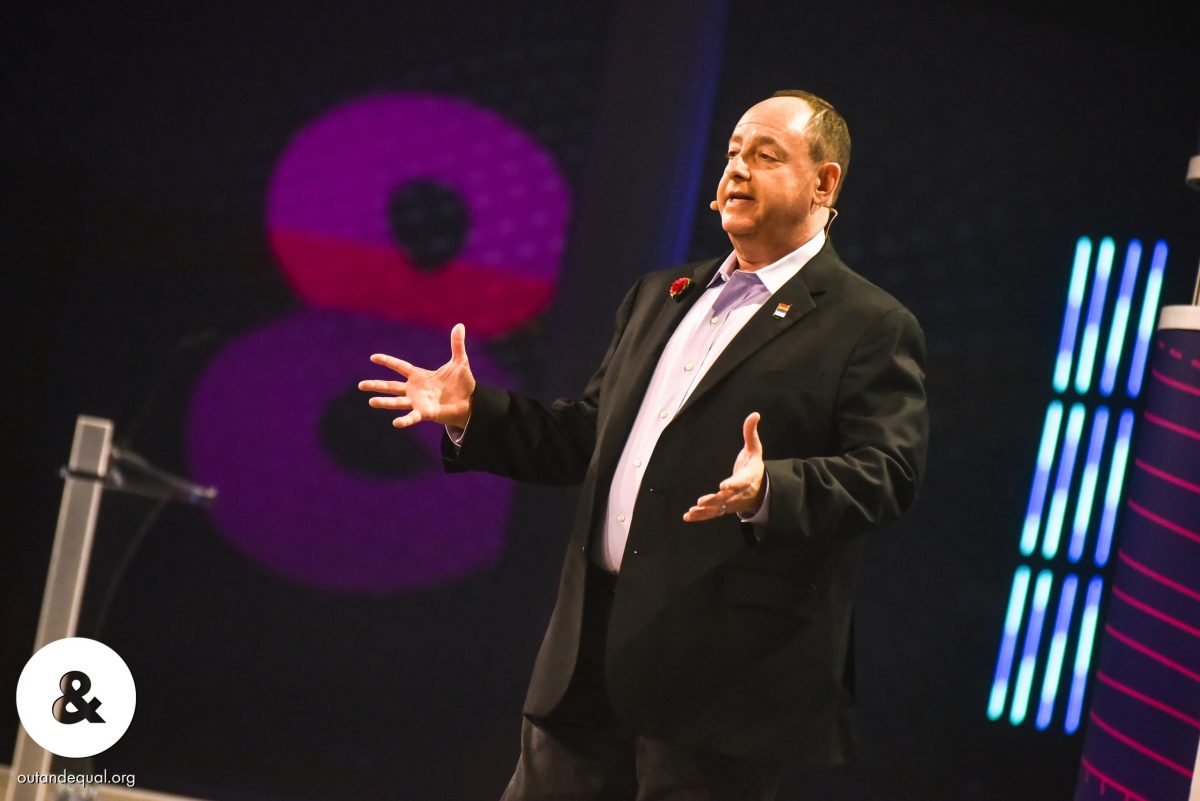
Your home is more than just a place to eat and sleep; it’s your safe haven. As much as you might cherish your home, you should probably also recognize the potential hazards within its familiar walls. Accidents can happen in an instant, yet with a little foresight and some simple adjustments, you can transform your house into a safer haven.
Accidents can happen anywhere, and with a few simple tweaks, you can lower risks in your space. Below you’ll find five tips for each room in your home to help prevent injuries, falls, and other mishaps. In short, home safety.
This article was inspired by a shower in a rental we managed that began leaking through the kitchen ceiling below. If only the landlord had installed grab bars, right!? Below, we’ll guide you through the steps to fortify your bathroom, making it a place of relaxation without the fear of slips and falls. Then, we’ll venture into the room where the magic happens, where proper planning can ensure great nights and peaceful mornings. We’ll show you how to prevent accidents while you experiment becoming the next Gordon Ramsey. And we’ll include a few surprising solutions for those other rooms that hold their own unique hazards, offering solutions to safeguard against unexpected mishaps.
Bathroom Safety
Install Grab Bars: Adding grab bars near the shower and toilet can provide essential support for family members of all ages. Not only can they help with getting in and out, but they can help provide stability when washing. Make sure they are securely anchored to the wall.
Non-Slip Mats: Place non-slip mats inside the shower and bathtub to prevent slips. They’re a small investment that can save you from falls and head injuries.
Adjust Water Temperature: Ensure your hot water is set to a safe temperature to avoid scalding. The hot water heater should be set to around 120°F (49°C)l, the middle setting on many water heater settings.
Medicine Cabinet Locks: If you have young children, use childproof locks on your medicine cabinet to keep harmful substances out of reach.
Proper Lighting: Ensure there’s adequate lighting in the bathroom to avoid trips and falls during nighttime visits. Nightlights can be a simple and effective solution.
Bedroom Safety
Clear Pathways: Keep pathways in the bedroom clutter free to prevent tripping. Ensure there’s enough space to move around comfortably, particularly getting around the bed. Be aware where all furniture is when walking around to avoid stubbed toes, particularly at night.
Secure Rugs: If you have throw rugs, use rug grippers or double-sided tape to keep them from slipping. Loose rugs are a common trip hazard.
Bed Rails: For anyone at risk of falling out of bed, consider installing bed rails to provide extra support and prevent falls.
Nightstands with Drawers: Opt for nightstands with drawers to keep essential items. This reduces the need to get out of bed at night, minimizing the risk of falls, as you race to grab what you need and not lose a moment’s rest.
Fire Safety: Install battery-operated smoke detectors in the bedrooms if there are none. Make sure to install them 36 inches away from an air vent or the edge of a ceiling fan. Also six inches away from the joint between the wall and ceiling. And test smoke detectors regularly.
Kitchen Safety
Non-Slip Flooring: Choose slip-resistant rugs in the kitchen, especially in areas where spills are common. Mats near the sink and stove can also help and you can often buy them fairly cheaply at Costco.
Childproof Cabinets: If you have little ones, use childproof latches on cabinets and drawers to prevent them from accessing potentially hazardous items.
Anti-tip brackets: Install an anti-tip bracket behind the range. These are often used when children are in the home. Although they are less likely to open the oven door and use it as a step stool to get to the stove-top, adults can also benefit from installing these.
Adequate Lighting: Proper lighting is crucial in the kitchen to avoid accidents. Under-cabinet lighting can illuminate work areas effectively.
Secure Heavy Items: Ensure heavy pots and pans are stored at waist level to prevent straining or dropping them from high shelves.
Sharp Object Storage: Keep knives and other sharp objects in a secure drawer or block. And handle all sharp items with extreme care, even when washing and drying. These steps reduce the risk of accidental cuts.
Other Safety Tips
Furniture Anchors: Secure heavy furniture, like bookshelves and dressers, to the wall to prevent tip-overs, especially if you have young children.
Adequate Outlets: Check for damaged outlets and replace them promptly. Avoid overloading circuits with too many devices. Install placeholder plugs in outlets to prevent young curious fingers (or tongues?) from going inside an electrical outlet.
Stair Gates: If your home has stairs, install safety gates at the top and bottom to prevent falls, especially if you have toddlers or pets to keep them off of the stairs when you cannot monitor them.
Emergency Escape Plan: Develop and practice an emergency escape plan with your family, including a designated meeting place outside.
Carbon Monoxide Detector: If your home burns any fossil fuels for heating or appliances, install carbon monoxide detectors in common areas of your home to detect this odorless gas. The D.C. building codes require this if you use a fireplace or if you have an attached garage. In essence, if there is any potential source of carbon monoxide in the home, be sure to install these detectors.
Remember, a safer home not only prevents accidents but also provides peace of mind for you and your family. Implement these simple tips to create a secure environment in every room of your house.
With these practical tips and a few adjustments, you can significantly reduce the risk of injuries and falls in your home. Enjoy peace of mind in your now much safer haven.
Scott Bloom is owner and senior property manager of Columbia Property Management.
-

 State Department5 days ago
State Department5 days agoHIV/AIDS activists protest at State Department, demand full PEPFAR funding restoration
-

 Brazil5 days ago
Brazil5 days agoUS lists transgender Brazilian congresswoman’s gender as ‘male’ on visa
-

 District of Columbia5 days ago
District of Columbia5 days agoCapital Pride wins $900,000 D.C. grant to support WorldPride
-

 Obituary4 days ago
Obituary4 days agoLocal attorney, LGBTQ rights advocate Dale Sanders dies at 75











